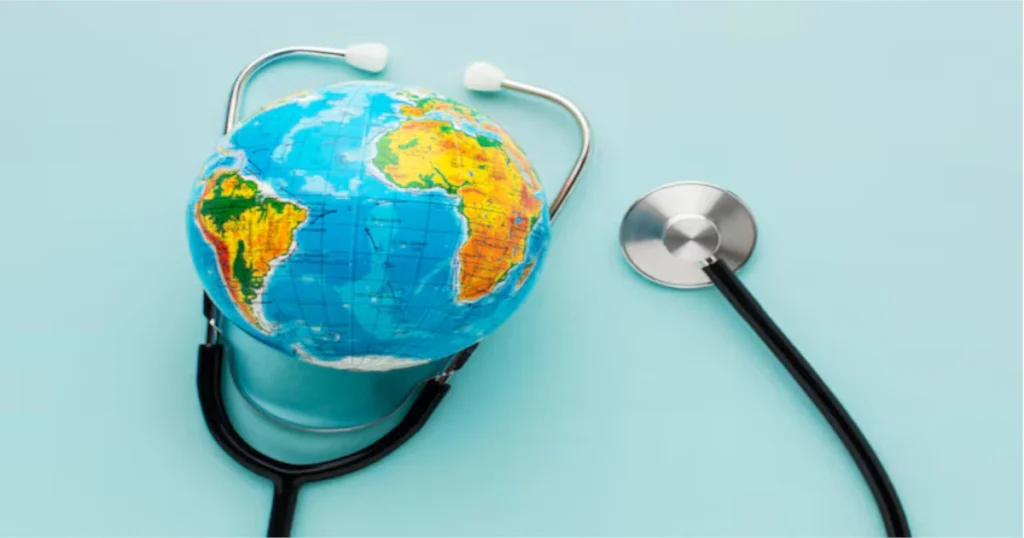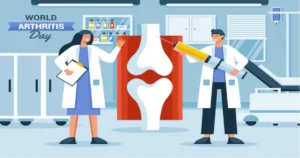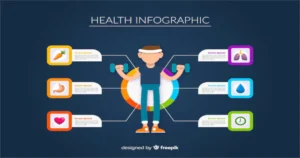Article Summary
The future of healthcare, often referred to as Health 2047, holds immense potential for innovation and improvement in medical practices, treatments, and overall well-being. In this blog post, we explore how advancements in technology, AI, telemedicine, and preventive care are shaping healthcare in the next few decades. We’ll look into the expected changes in health systems, the role of data in diagnostics, and how these shifts will impact healthcare delivery in the United States. By 2047, healthcare could be drastically different, but the key will lie in balancing innovation with patient-centered care.
Introduction: Health 2047 – Shaping the Future of Healthcare
The future of healthcare is exciting, with innovations set to change the way we approach well-being. Health 2047 promises a transformation in how healthcare is delivered, experienced, and accessed. Medical advancements, powered by technology, are expected to play a major role in improving overall health outcomes. The year 2047 could mark a pivotal shift in global healthcare systems, with more efficient treatments, personalized care, and new preventative measures. The United States, in particular, stands to benefit from these shifts as healthcare practices continue to evolve rapidly.
The Evolution of Healthcare: What Does 2047 Look Like?
The landscape of healthcare has already changed dramatically in recent decades. By 2047, the integration of technology will revolutionize how patients and healthcare providers interact. With a continued focus on efficiency, data analytics, and patient-centered care, healthcare will be vastly different.
Rise of Artificial Intelligence and Robotics
Artificial Intelligence (AI) is set to transform healthcare by 2047. Machine learning and AI-driven tools will become an essential part of diagnostic procedures, treatment plans, and patient monitoring. AI could accurately diagnose diseases by analyzing vast amounts of medical data, far faster than any human doctor could. It may also guide robotic surgery, ensuring precision and minimal recovery time for patients. With AI, healthcare providers can make faster decisions, reduce human error, and improve patient outcomes.
The Role of Telemedicine and Virtual Care
Telemedicine is already popular in 2023, and by 2047, its role will expand dramatically. Virtual consultations will be the norm, allowing patients in remote areas to access top-tier healthcare professionals without leaving their homes. Video consultations, virtual health monitoring, and telemedicine apps will make healthcare more accessible, especially in rural areas. Virtual care will not just be limited to minor consultations but also include monitoring chronic conditions, mental health services, and even post-operative recovery.
The Transformation of Healthcare Delivery in the United States
The healthcare system in the United States is one of the most advanced, but it also faces significant challenges. By 2047, healthcare delivery will become more patient-centric, efficient, and personalized.
Personalized Medicine: The Future of Treatment
One of the most anticipated trends is personalized medicine, which involves tailoring health 2047 treatments to individual patients based on their genetic makeup. With advancements in genomics, doctors will be able to predict which treatments will work best for each patient, reducing trial and error in prescribing medication. As genetic testing becomes more affordable and widely accessible, healthcare will shift toward treatments that target the root causes of diseases, rather than just symptoms.
Health Data and Predictive Analytics
In 2047, health data will be at the forefront of healthcare practices. With the widespread use of wearable devices and health apps, patients will continuously monitor their vitals, exercise, and even mental well-being. These devices will send real-time data to healthcare providers, who will use predictive analytics to prevent illness and optimize health outcomes. This data-driven health 2047 approach will reduce emergency visits and hospital admissions, focusing on prevention rather than reactive treatments.
Preventive Healthcare: A Major Focus by 2047
Prevention will take center stage in Health 2047. Healthcare will no longer just focus on treating illness; instead, there will be a heavy emphasis on keeping people healthy and health 2047 preventing diseases from occurring in the first place.
Advancements in Vaccines and Immunotherapy
Vaccines have already saved millions of lives, and by 2047, they will play an even bigger role in disease prevention. New types of vaccines, including those for cancer and other chronic diseases, could be developed. Immunotherapy will continue to evolve, providing health 2047 groundbreaking treatments for diseases that were previously considered untreatable.
The Impact of Lifestyle and Diet on Health
Healthcare will place a stronger emphasis on lifestyle factors like diet, exercise, and mental health. By 2047, physicians may routinely prescribe wellness plans, including nutrition and health 2047 fitness routines, as part of their treatment regimens. Advances in nutrition science may allow for even more tailored diets to prevent chronic diseases such as diabetes, heart disease, and obesity. People may even receive genetic tests that determine the best diet and exercise plan for their unique genetic makeup.
Global Health Innovations and the Role of the U.S. in Health 2047
The United States is expected to lead in healthcare innovation by 2047. However, advancements will also be influenced by global trends, with other countries making significant strides in medical technology and care delivery.
Global Health Initiatives and Partnerships
By 2047, the U.S. will likely collaborate more with other nations on global health initiatives. With better access to healthcare, especially in low-income regions, diseases that are currently prevalent in certain parts of the world may be eradicated or controlled. The sharing of medical research, data, and innovations between countries will help create a more equitable global health 2047 healthcare system.
Global Health Data and Real-Time Monitoring
Global health data will be accessible in real-time, allowing healthcare providers worldwide to collaborate more efficiently in responding to health crises. The U.S. will lead in developing platforms for real-time health monitoring, particularly for infectious diseases, environmental hazards, and public health emergencies. Data sharing on a global scale will help prevent health 2047 outbreaks before they escalate into pandemics.
The Changing Role of Healthcare Professionals in 2047
As technology takes on more of the diagnostic and treatment responsibilities, healthcare health 2047 professionals will transition to more advisory roles, focusing on patient care and decision-making. The healthcare workforce will evolve, with new specialties and roles emerging.
Doctor-Patient Relationship in the Digital Age
Although technology will play a larger role in diagnosis and treatment, the doctor-patient relationship will still be vital. In Health 2047, physicians will serve as guides in the healthcare system, interpreting data and advising patients on the best courses of action. Patients will increasingly be involved in decisions about their own health, with doctors serving as partners in the decision-making process.
Healthcare Jobs: New Roles and Opportunities
By 2047, healthcare jobs will have transformed. AI developers, data scientists, and health informatics experts will work alongside traditional healthcare providers. There will be an health 2047 increase in demand for specialists in telemedicine, remote care, and digital health technology. Healthcare professionals will need new skills to adapt to these changing roles, emphasizing both technical expertise and patient care.
Challenges to Achieving Health 2047 Goals
While Health 2047 presents an optimistic vision of the future, several challenges must be health 2047 addressed to achieve these goals. The U.S. healthcare system, despite its advancements, faces issues related to cost, access, and equity.
Addressing Healthcare Disparities
A major challenge will be reducing healthcare disparities, especially in underserved communities. While technology and innovation may benefit wealthier populations first, efforts must be made to ensure that everyone has equal access to healthcare advancements. By 2047, the focus will need to be on making healthcare equitable for all, regardless of socioeconomic status or geographic location.
Ethical Considerations in Healthcare Innovation
With the rise of AI, robotics, and personalized medicine, ethical concerns will come to the forefront. Issues such as data privacy, the role of machines in decision-making, and the health 2047 accessibility of cutting-edge treatments will need to be addressed. By 2047, healthcare professionals, lawmakers, and technology developers will need to work together to ensure that these innovations are used responsibly.
Conclusion
Health 2047 offers a glimpse into a future where healthcare is more accessible, efficient, and personalized than ever before. Technology, data, and a shift toward prevention will reshape the way we experience healthcare. As the U.S. continues to lead in healthcare innovation, it must address challenges related to equity and access to ensure that the benefits of these advancements are felt by all. The road to Health 2047 will require cooperation, innovation, and a focus on patient well-being at every stage. The future of healthcare looks bright, and it will be exciting to see how it unfolds over the next few decades.
Frequently Asked Questions (FAQs)
What can we expect from healthcare in 2047?
By 2047, healthcare is expected to be more personalized, efficient, and technology-driven. Innovations such as artificial intelligence, robotic surgeries, and telemedicine will reshape how care is delivered. Preventive care will also become a primary focus, with data analytics playing a significant role in predicting health issues before they occur. As a result, treatment options will be more accurate, and healthcare will become more accessible to people across the globe.
How will artificial intelligence impact the healthcare industry by 2047?
Artificial intelligence (AI) will significantly transform healthcare by 2047. AI will be used to diagnose diseases quickly, analyze medical data, and assist in personalized treatment plans. Additionally, robotic surgeries guided by AI will ensure higher precision and quicker recovery times for patients. These advancements will enable healthcare providers to make faster, more informed decisions, improving patient outcomes.
What role will telemedicine play in healthcare by 2047?
Telemedicine will become a central part of healthcare by 2047, making healthcare more accessible, especially in rural and remote areas. Virtual consultations, real-time health monitoring, and remote patient care will allow individuals to access healthcare services from the comfort of their homes. As technology improves, telemedicine will expand to cover a wide range of healthcare needs, from general consultations to chronic disease management.
How will healthcare data be used in 2047?
By 2047, healthcare data will be at the forefront of medical practice. Wearable devices and health apps will collect real-time data on a person’s vitals, lifestyle, and overall health. Healthcare providers will use this data to predict health risks, personalize treatment plans, and prevent chronic diseases. The integration of predictive analytics will make it easier to address health issues before they become serious.
What are the potential challenges in achieving the healthcare vision of 2047?
While the vision for healthcare in 2047 is optimistic, there will be significant challenges. These include ensuring equal access to advanced medical technologies, addressing healthcare disparities, and managing the ethical implications of AI and data use. It will be essential to focus on providing affordable healthcare to all populations while maintaining data privacy and security.
How will healthcare professionals’ roles change by 2047?
By 2047, the role of healthcare professionals will evolve to focus more on patient guidance and decision-making. With advancements in AI and telemedicine, doctors and healthcare workers will rely on technology to make informed decisions. New job roles in digital health, data science, and remote care will emerge. Healthcare professionals will need to adapt by learning new skills, focusing on both technology and patient care.





















